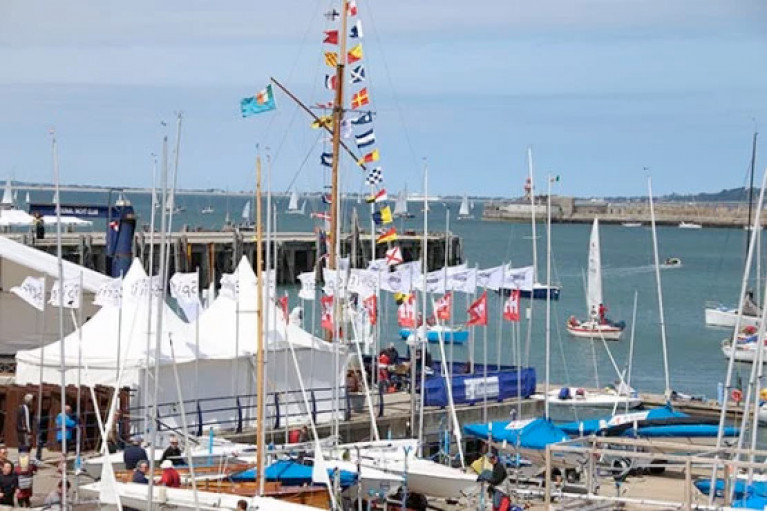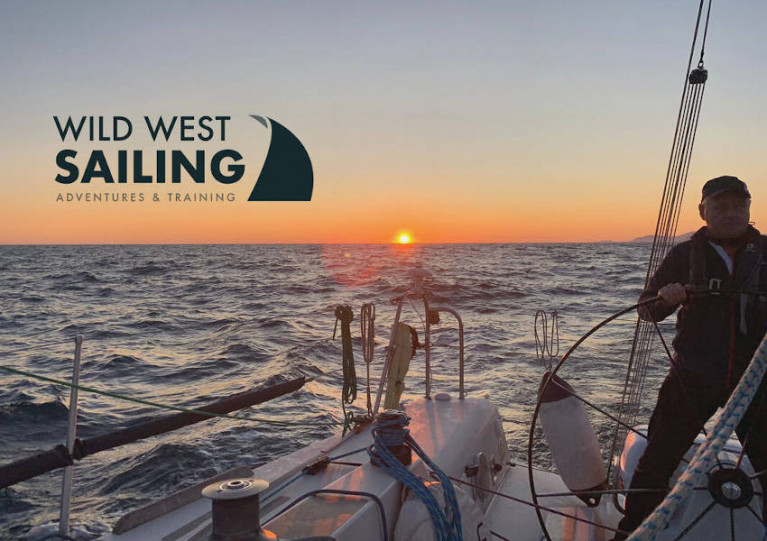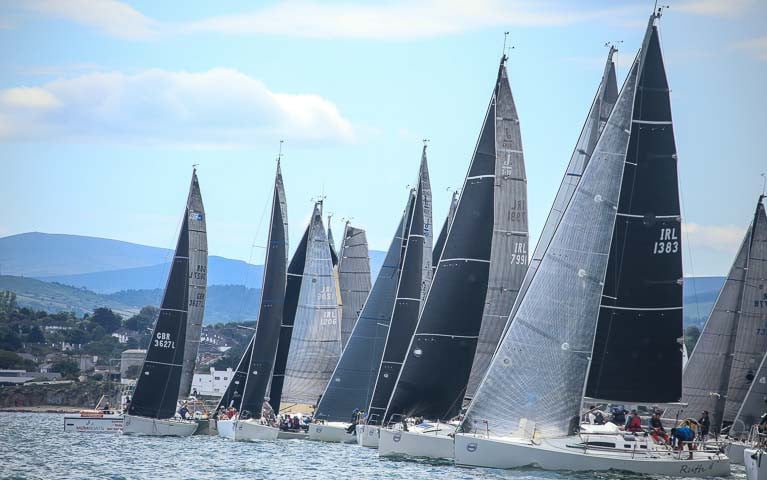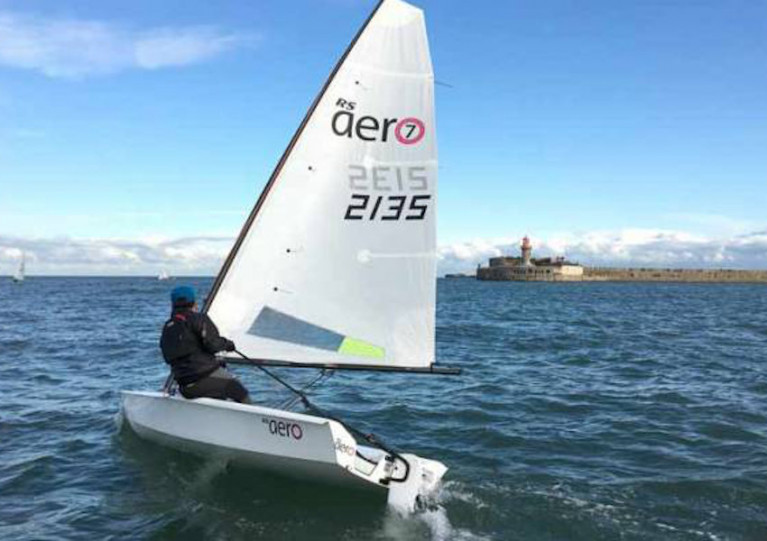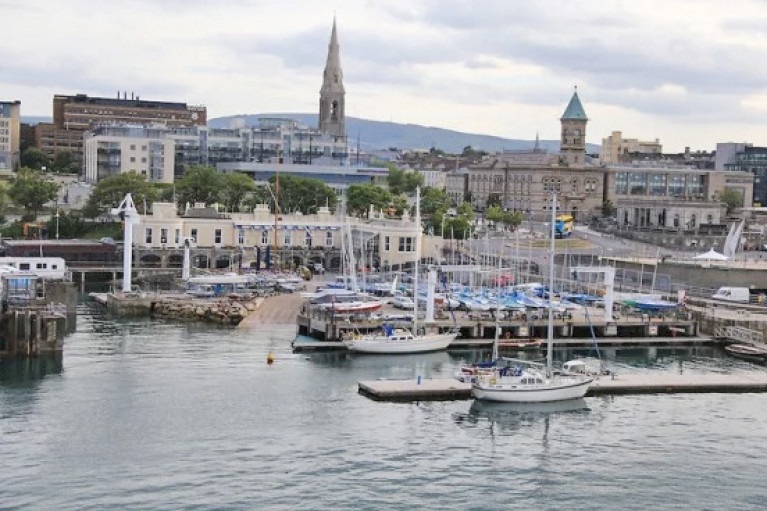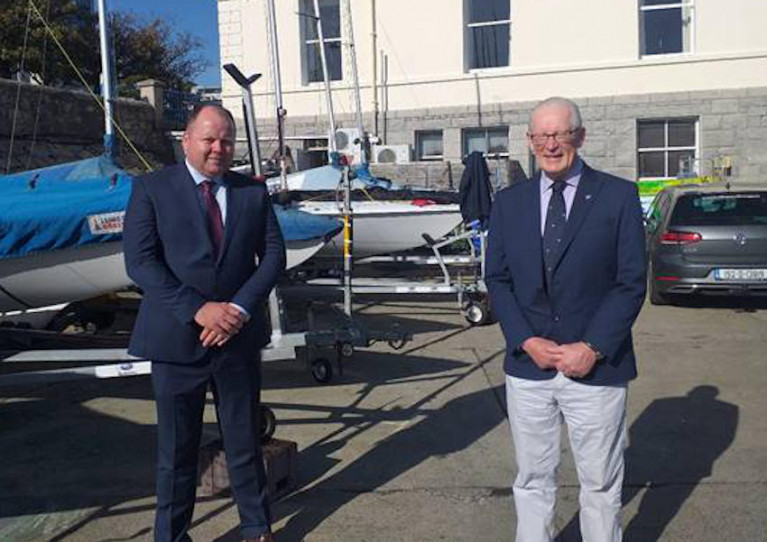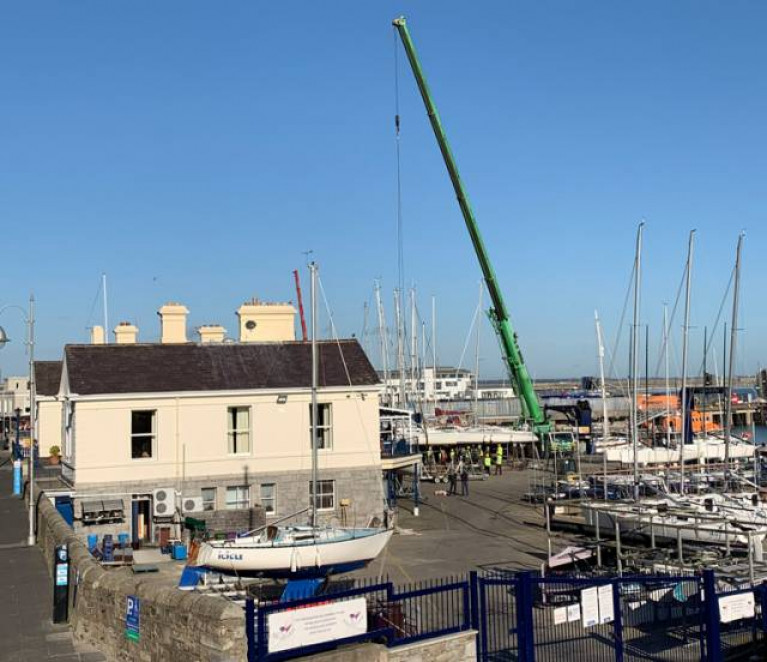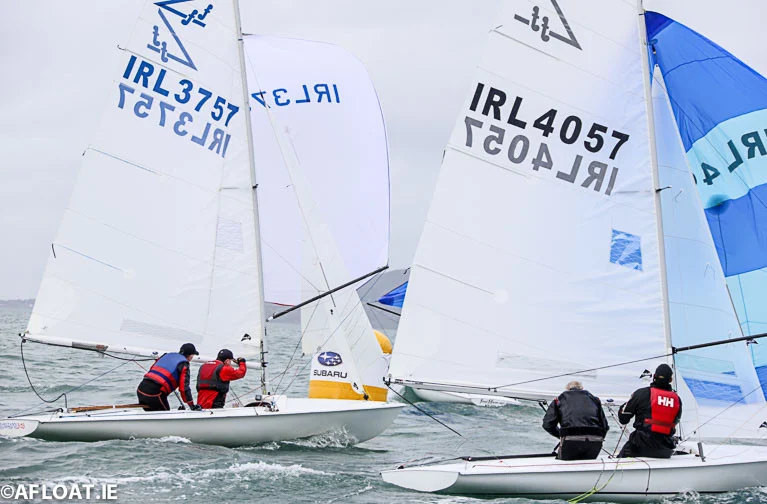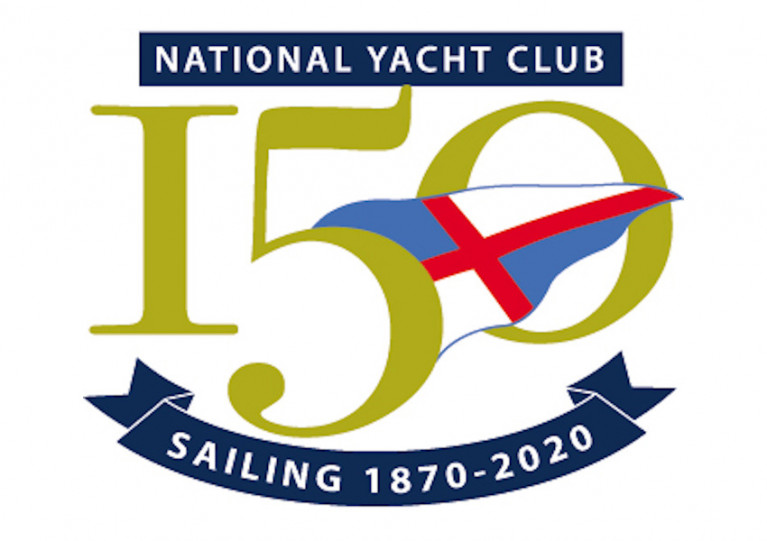Displaying items by tag: nyc
The Notice of Race and online entry form are now available for the Irish Cruiser Racing Association’s National Championships 2021 later this year.
As previously reported on Afloat.ie, the National Yacht Club in Dun Laoghaire is the host for this year’s event — scheduled for the weekend of Friday 3 to Sunday 5 September.
The three-day Championships being held in Dun Laoghaire will comprise fleets accommodating offshore, traditional and white sail racing.
Each fleet will get its own race areas with race management. Three fleets will be accommodated at the event covering:
- Fleet 0 Class 0
- Fleet 1 Class 1 and 2
- Fleet 2 Class 3 and Corinthians Cup White Sails classes
Fleet 0 will be provided with a combination of Coastal courses and Windward Leeward races, while Fleets 1 & 2 will have a mix of inshore races covering both Round the Cans and Windward Leeward courses.
 The Irish Cruiser Racing Association’s National Championships 2021 is on Dublin Bay this September
The Irish Cruiser Racing Association’s National Championships 2021 is on Dublin Bay this September
Courses will be managed by International PROs Jack Roy and Con Murphy from the NYC.
Back on shore, possibly for the first big Irish regatta of the year, the renowned National Yacht Club will welcome and provide full hospitality for all, subject to prevailing COVID 19 regulations.
Regatta Director, Paul Barrington commented, "The National Yacht Club is delighted to be hosting the ICRA National Championships and to welcome sailors from around the island of Ireland following a very difficult 18 months. Together with ICRA and a large team of National Yacht Club volunteers, we look forward to creating an environment for enjoyable and competitive racing for these prestigious Championships."
 The National Yacht Club in Dun Laoghaire is the host for this year’s event
The National Yacht Club in Dun Laoghaire is the host for this year’s event
ICRA Commodore, Richard Colwell added, "We are delighted to launch the ICRA National Championships 2021 in conjunction with the NYC and our sponsors. It is fantastic to be launching an event that looks very likely to go ahead, and now looks certain to be one of the biggest and most competitive events of the year. We will have great racing and fun for all cruiser racers at the Championships, from J24s to Sunfast 3300's, and both furling and non-furling white sails classes. We recommend completing your entry as soon possible to ensure your place."
Entries can be made on-line here before 20 August 2021
The Entry Fees are as follows:
Before 11th June
Boats rating 0.895 and under €165
Boats rating between 0.896 and 0.985 €195
Boats rating 0.986 and above €225
After 11th June
All Boats €245

The National Yacht Club is seeking expressions of interest from all members aged 16 to 25, regardless of class or experience, in the prospect of forming an U25 J80 squad.
The rough plan is for a five-person team (with one or two subs) who will campaign a J80 this summer, pandemic restrictions allowing, with weekly training and racing at the J80 Nationals, ICRAs and Volvo Dun Laoghaire Regatta.
For more details on the team, the selection process and the submission form, see the NYC website HERE.
The National Yacht Club has teamed up with Wild West Sailing to run online ICC refresher and RYA day skipper navigation courses for its members.
It follows the success of the small boat coastal navigation course currently running for NYC members that’s been organised by Women on the Water.
The RYA day skipper navigation course (€400 pp for NYC members) runs on Zoom over five weeks on Thursday and Friday evenings from 6pm-9.30pm starting this coming Thursday 11 February.
Meanwhile, the ICC refresher course (€150 pp for NYC members) will run over four Wednesday evenings from 6pm-9.30pm from 17 February.
It will cover buoyage and pilotage; IRPCS (Col. Regs); chartwork, position fixing and tidal streams. There will also be a mock exam ahead of assessments that can be organised in Dun Laoghaire and Sligo.
National YC Congratulates DBSC on ‘Sailing Club of the Year’ Gong
The National Yacht Club has offered its congratulations to Dublin Bay Sailing Club on its recognition as Mitsubishi Motors Sailing Club of the Year for 2021.
As our own WM Nixon wrote last week, it marks only the second time that the unique Dublin organisation — primarily comprising members of the Dun Laoghaire waterfront clubs, the NYC included — has received the accolade.
“DBSC did a fantastic job in difficult circumstances in 2020 to get our members out sailing for most of the summer,” said National Yacht Club Commodore Martin McCarthy.
“The NYC is delighted that our member Ann Kirwan has taken on the role of Commodore of DBSC this year, with club stalwart Chris Moore being Hon Sec, and other NYC members also heavily involved on other fronts.
“Congratulations also to 2020 Commodore Jonathan Nicholson on his fine stewardship of the club.”
The National Yacht Club has cancelled its previously scheduled January training sessions in the RS Aero due to the extended Level 5 coronavirus restrictions.
It's hoped the sessions will be rescheduled for future weeks as restrictions allow. The NYC website will have an update on details accordingly.
While this training cannot go ahead as planned, it nevertheless marks a recognition of the growth of the RS Aero class which now has 25 boats across Ireland, as recently reported on Afloat.ie.
Dinghy Parking Updates From Dun Laoghaire Waterfront Clubs
Summer dinghy parking at the Royal St George Yacht Club in Dun Laoghaire ended this past Sunday 11 October, and all dinghies were expected to be removed by that date to facilitate the club’s annual lift-out.
A limited number of storage slots are available for those signed up for winter training and/or the DMYC Frostbite racing series, and anyone who has not yet done so is invited to apply HERE.
Temporary space has also been secured in the Old Ferry Terminal until Friday 30 October for boats that do not yet have a winter parking slot. Please note that you will need to bring over your own boat and collect it on the assigned dates.
Optimists are currently exempt from these requirements, but storage space is available — with preference given to those actively sailing, who will get the bottom racks.
Meanwhile, the neighbouring National Yacht Club is now taking applications for dinghy platform parking over the winter.
Dinghies taking part in either the junior training sessions or the Frostbite series must complete this form prior to bringing their boats back on the platform.
Boaters must note that platform parking does not reopen before Saturday 31 October as the boathouse still has to lift many keelboats on trailers and position them on the platform following the main lift-out scheduled for Saturday 24 October.
New General Manager John O’Grady A Welcome Addition To National Yacht Club Team
The National Yacht Club welcomes new general manager John O’Grady, who started this morning (Tuesday 29 September) and brings a wealth of experience in the hospitality sector, particularly with the neighbouring Royal Marine Hotel.
O’Grady joins at a crucial time, as Level 3 lockdown restrictions in Dublin put paid to so much hard work by the NYC staff in ensuring safe dining for members in the clubhouse.
The club says it is learning from its first week of Level 3 catering, with upgrades to the outdoor shelter and heating, and reconfiguring the balcony and outside the JB Room to make things more comfortable.
There is a rolling catering programme from noon to 7pm each day, and these hours may be extended if weather allows. Chef Cormac and his team are also offering a full takeaway service.
In the meantime, O’Grady and the clubhouse team have started planning for events for once Dublin emerges from Level 3 and following next month’s scheduled lift-out, with quiz nights, awards nights, speakers’ suppers, ladies’ lunches and more.
They may take on a different format, the NYC says, but with the adjustments everyone has made this year they can still bring members together.
National Yacht Club Lift-Out Day Scheduled For End Of Next Month
Dun Laoghaire sailors are advised that lift-out day on the National Yacht Club platform is scheduled for Saturday 24 October, weather permitting.
Platform space for winter storage is limited and, for essential planning purposes, applications for keelboats should be returned prior to Monday 21 September.
Applications must include a cheque made payable to the National Yacht Club and come with confirmation of intention via email to [email protected]
Notice Of Race For Flying Fifteen East Coast Championship Next Weekend
The National Yacht Club hosts the Flying Fifteen East Coast Championship in Dublin Bay next weekend, Saturday 19 and Sunday 20 September.
The Notice of Race is available to read or download, and the online entry form can be found HERE.
Please note that due to the coronavirus pandemic, there is no race office for the event.
All competitors, skippers and crews, are invited to join the WhatsApp group dedicated to facilitate communications for this event.
The competitors’ briefing will be via Zoom (link emailed to competitors) on Saturday 19 September at 9am and all helms and crews are encouraged to download and unstall the Zoom app ahead of time.
The National Yacht Club’s planned two-day race weekend for its own 150th anniversary has been scaled down to a single-day event now known as the Sesquicentennial Race Day.
The decision was reached earlier this week following the latest Government announcements concerning the coronavirus pandemic.
Now scheduled solely on Saturday 5 September, the event will be on-the-water only with no social events or catering on land other than regular offerings available to club members by prior booking.
The NYC website has further details of the reconfigured event and how to enter.
Elsewhere, Wicklow Sailing Club has offered its apologies to the catamarans that were expected to visit the club next weekend as due to the current restrictions, the club is not in a position to host visiting boats.
The East Coast club, which last month was forced to cancel this year’s edition of the Round Ireland Yacht Race, says it hopes to welcome the catamarans again in 2021.


























